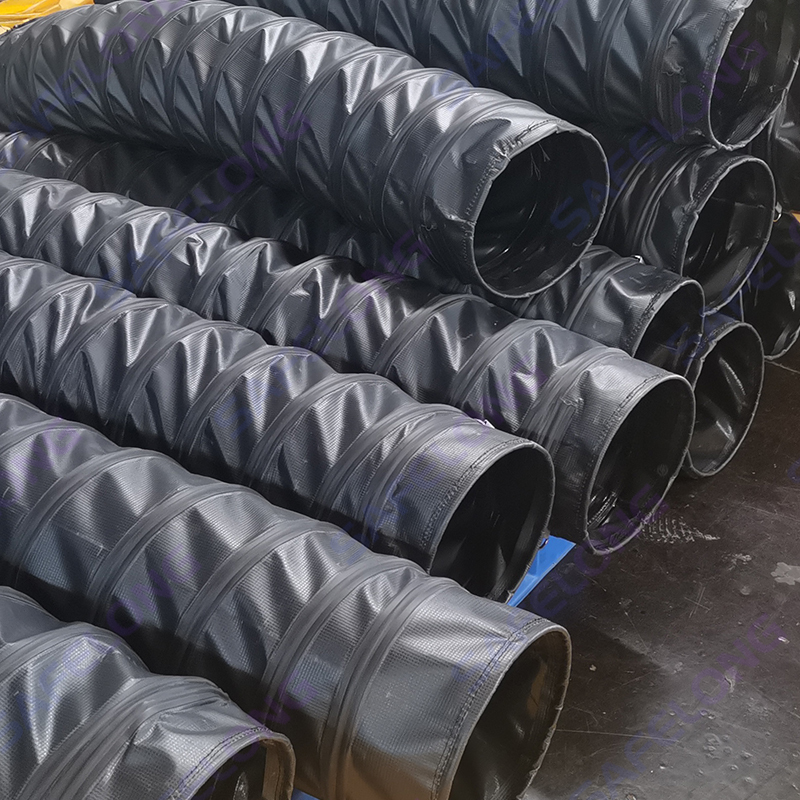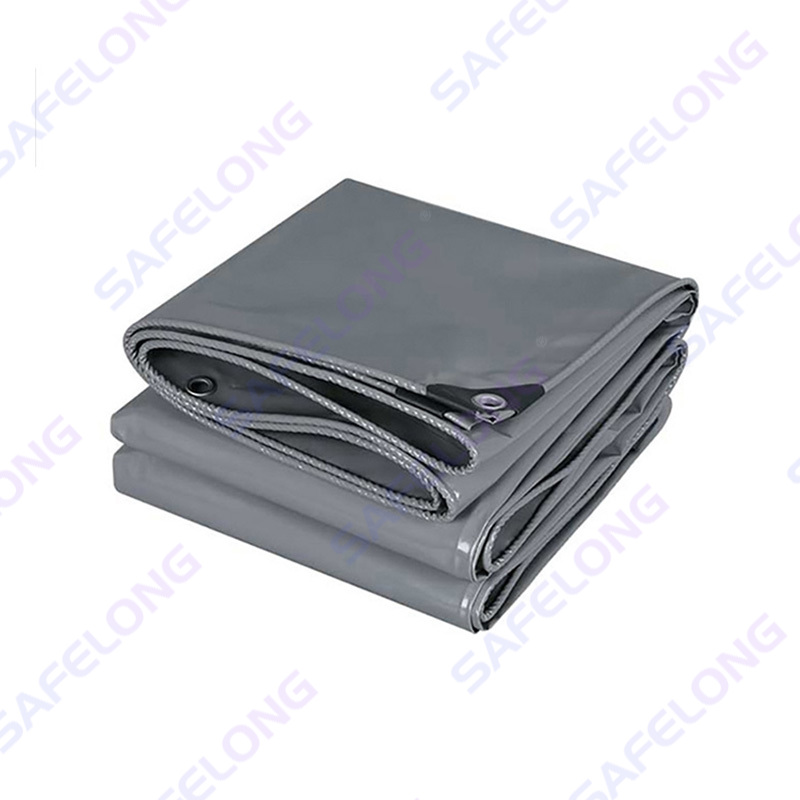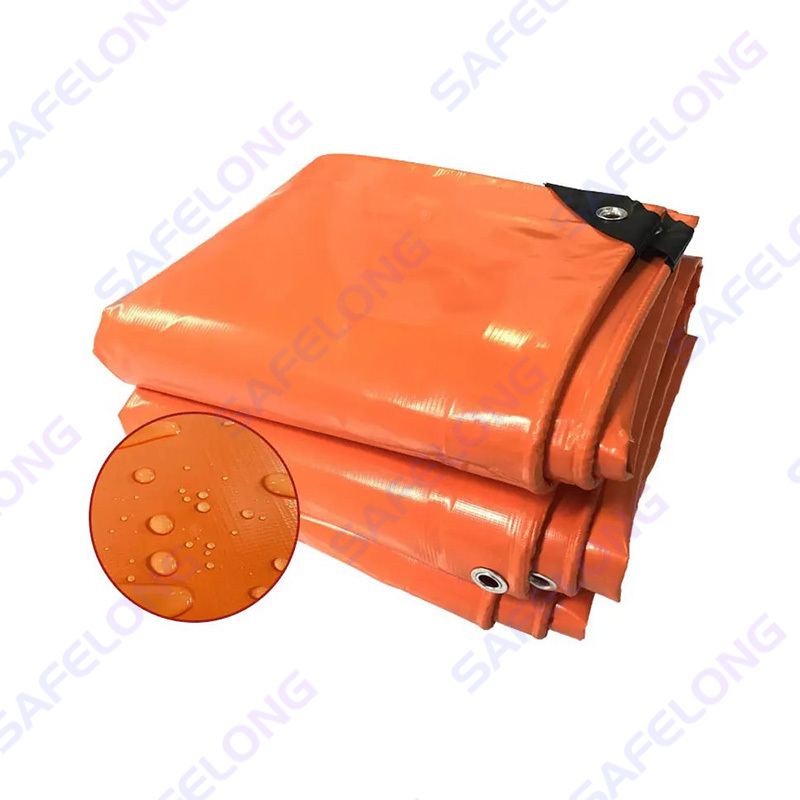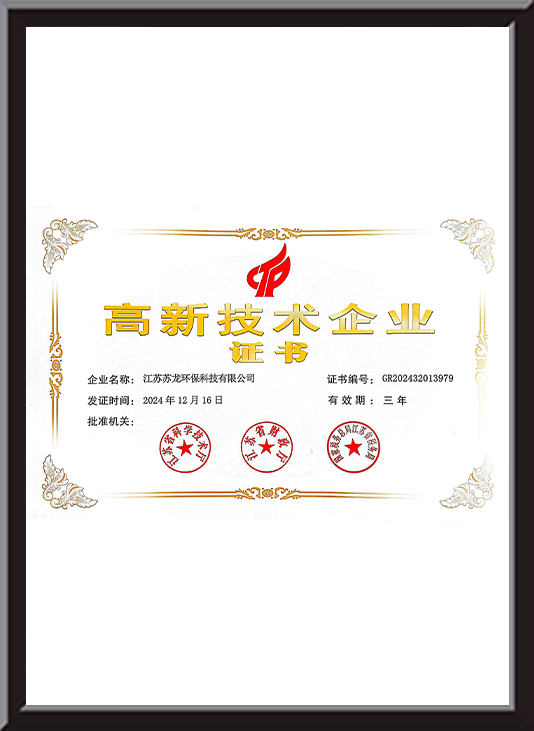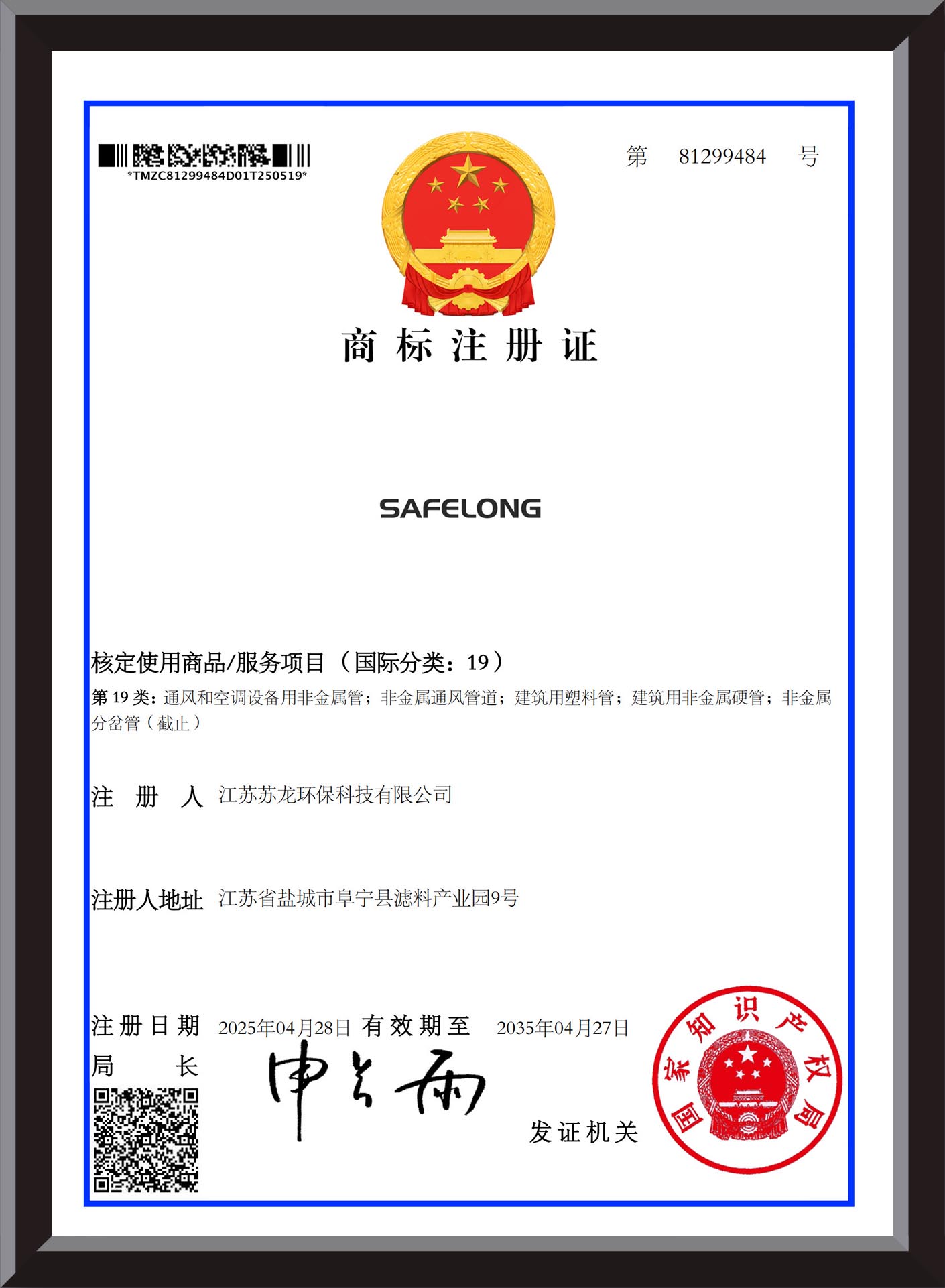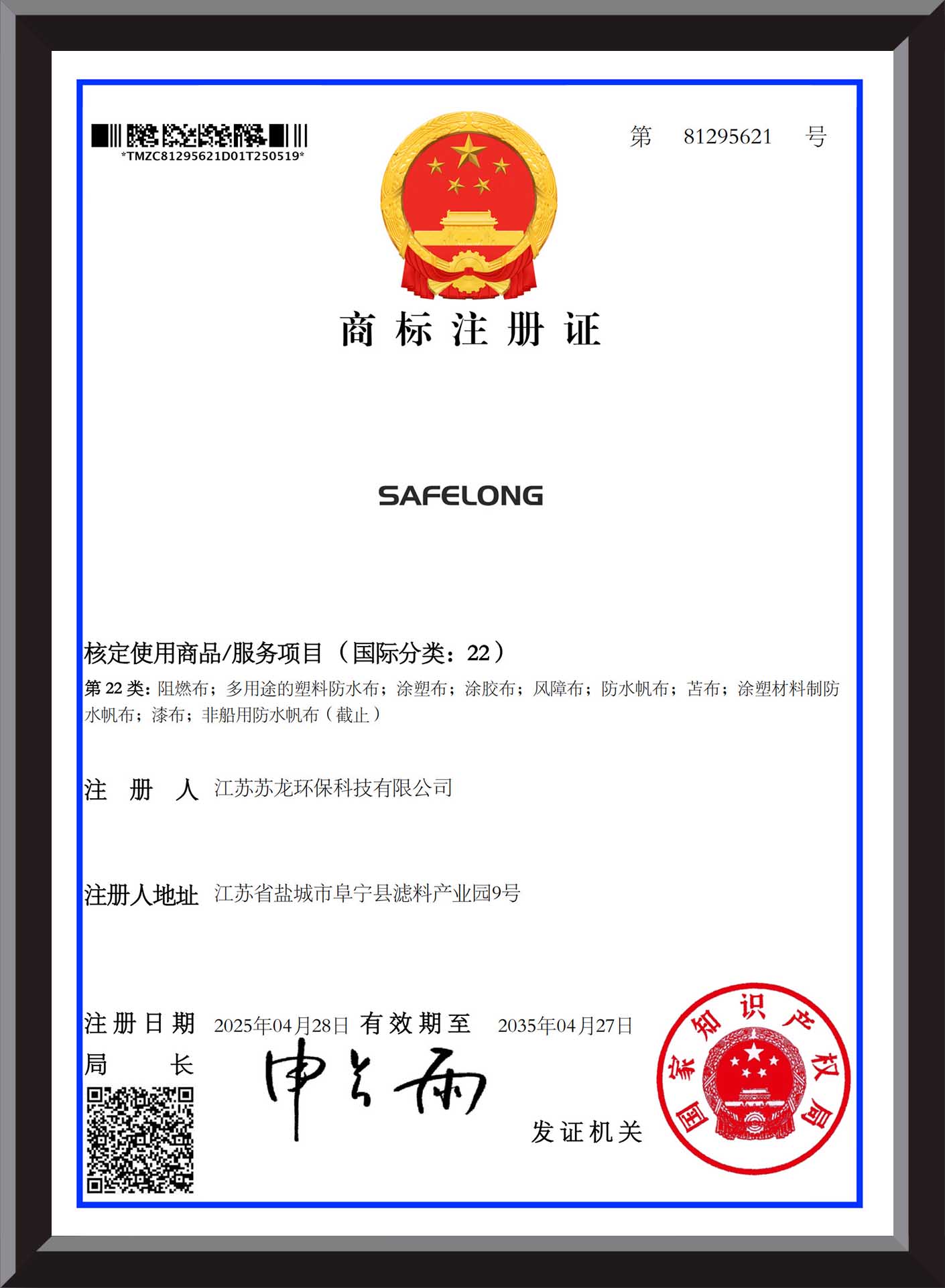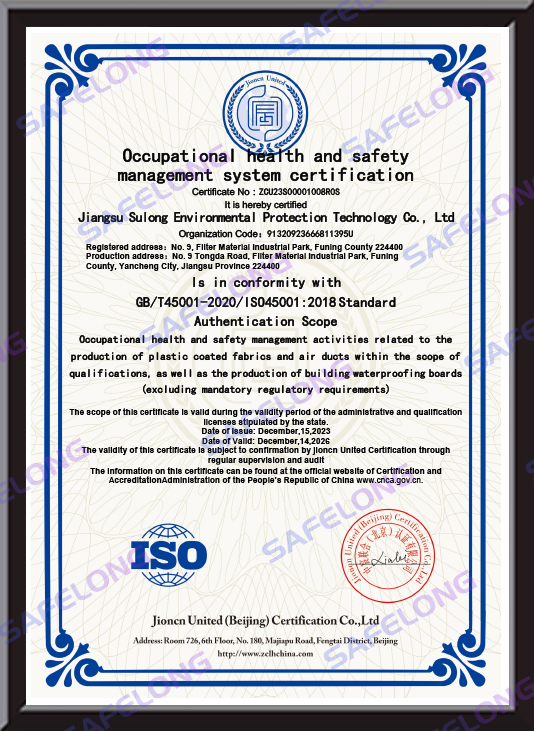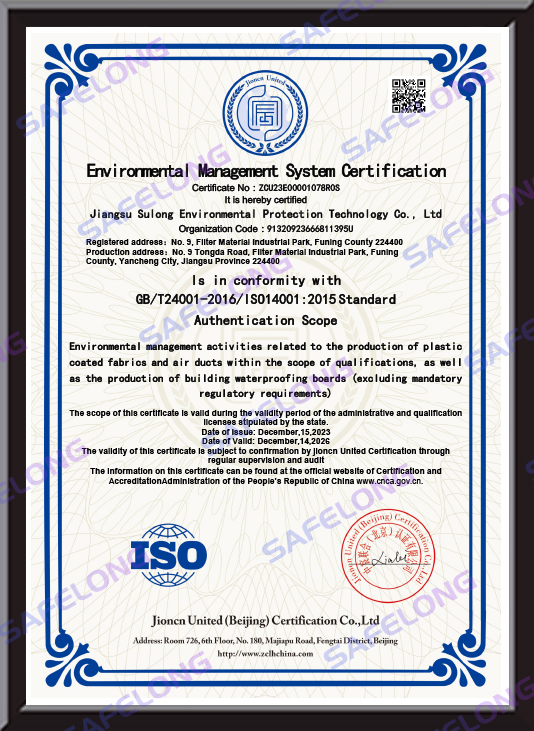In the industrial and environmental fields, PVC tarpaulin covers are gaining increasing attention as a versatile material. They not only demonstrate great potential in protective applications but also embody the integration of modern technology and sustainable development. Jiangsu Sulong Eco-Technologies Co., Ltd., a company dedicated to environmental technology innovation, has injected new vitality into this field through industry-university-research collaboration and patent accumulation.
Question 1: What is the basic definition of PVC tarpaulin covers?
PVC tarpaulin covers are synthetic materials made primarily from polyvinyl chloride (PVC). They are waterproof, windproof, and UV-resistant. They are typically enhanced with coatings or lamination processes for durability, making them suitable for a variety of outdoor and industrial environments. Jiangsu Sulong Eco-Technologies Co., Ltd., in its innovation in materials science, leverages its collaboration with universities to continuously optimize the basic formula of these covers, emphasizing the use of environmentally friendly ingredients to enhance the overall performance of the products.
Question 2: What are the key components of PVC tarpaulin covers?
The core materials of these covers include PVC resin, plasticizers, stabilizers, and reinforcing fibers, which together impart flexibility, tear resistance, and weather resistance. The choice of plasticizer directly impacts the material's plasticity and environmental friendliness, while stabilizers ensure stability in extreme temperatures. Jiangsu Sulong Eco-Technologies Co., Ltd., through an industry-university-research partnership, has collaborated with Sichuan University and other institutions to develop new bio-based plasticizers to reduce environmental impact while strengthening the sustainable production process for coverings.
Question 3: What are the main applications of PVC tarpaulin coverings?
PVC tarpaulin coverings are widely used in construction sites, agricultural coverings, logistics and transportation, and temporary shelters, providing a reliable protective barrier. In the construction industry, they are used to cover building materials to prevent rainwater erosion; in agriculture, they are used as greenhouse or crop cover to regulate temperature and humidity. Jiangsu Sulong Eco-Technologies Co., Ltd. incorporates these applications into its product line and, incorporating environmental awareness, has designed recyclable versions to serve urban development and ecological projects, demonstrating the company's commitment to resource recycling.
Question 4: What are the core advantages of PVC tarpaulin coverings?
This covering's strengths lie in its exceptional durability, ease of maintenance, and versatility. Durability stems from the material's UV and chemical resistance, ensuring long-term protection against the elements. Easy maintenance is achieved through a cleanable surface, extending its lifespan. Versatility allows for custom sizes and colors to suit diverse needs. Jiangsu Sulong Eco-Technologies Co., Ltd. leverages its patented technology to optimize the covering's aging resistance and reduces costs through innovative processes, making the product more attractive in the market.
Question 5: How does PVC tarpaulin cover achieve environmental sustainability?
The sustainability of PVC tarpaulin cover lies in its recyclability and low-emission production process. By using environmentally friendly plasticizers and reducing harmful additives, the product can be reused through professional recycling systems after use, reducing waste pollution. As a pioneer in environmental technology, Jiangsu Sulong Eco-Technologies Co., Ltd. incorporates this philosophy throughout its R&D process. It collaborates with Yancheng University of Technology to explore biodegradable materials, promoting the green transformation of its coverings and reducing its carbon footprint.
Question 6: How does Jiangsu Sulong Eco-Technologies Co., Ltd. promote innovative development in PVC tarpaulin cover?
Through an industry-university-research partnership, the company has established strategic partnerships with universities such as Sichuan University, focusing on material improvement and application expansion. Its patented achievements cover the structural design and production process of coverings, improving product reliability and environmental standards. Driven by innovation, the company is committed to developing smart coverings that integrate sensor technology to monitor environmental changes, demonstrating its leadership in the industry.


 英语
英语 西班牙语
西班牙语 俄语
俄语


